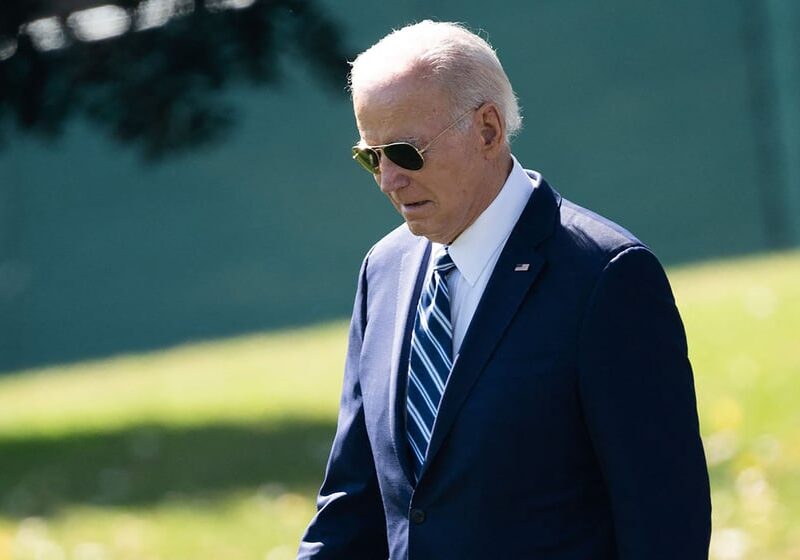President Joe Biden is planning an exceptional visit to Israel this week, taking place during a time of heightened conflict. His visit is aimed at demonstrating unwavering support for Israel as it deals with the challenge of eliminating Hamas while also seeking ways to alleviate the humanitarian crisis in Gaza.
These dual objectives, as outlined by his top diplomat, carry significant risks as the president strives to prevent the Middle East crisis from escalating further. President Biden expressed a keen interest in making this trip after being invited by Prime Minister Benjamin Netanyahu, a relationship spanning four decades. He engaged in discussions at the White House on Monday, deliberating the trip with his top national security and intelligence advisers.
Meanwhile, in Tel Aviv, Secretary of State Antony Blinken convened a lengthy session with top Israeli officials to address the opening of Gaza to humanitarian aid and to ensure that civilians are not inadvertently affected by Israel’s response to the ongoing conflict.
Following over seven hours of negotiations, Secretary Blinken announced President Biden’s visit on Wednesday. He also revealed that the United States and Israel have reached an agreement to develop a plan that will facilitate the delivery of humanitarian aid from donor nations and multilateral organizations to civilians in Gaza.
During his trip, the U.S. president will also visit Jordan, where he will meet with King Abdullah II, President Abdel Fattah el-Sisi of Egypt, and Palestinian Authority President Mahmoud Abbas. Secretary Blinken had separate meetings with these leaders, all of whom have expressed condemnation for the situation in Gaza.
The security concerns associated with a diplomatic visit to Israel were starkly demonstrated on Monday when Secretary Blinken, during his meeting with Prime Minister Netanyahu, had to take shelter due to air sirens signaling incoming rockets. White House officials stated that they had thoroughly assessed the risks of a presidential visit and concluded that it was safe enough to both carry out and announce in advance.
The President’s visit will be an extension of Secretary Blinken’s extensive tour of seven Middle Eastern nations over several days. This tour is occurring as the United States seeks to strike a delicate balance by offering steadfast support for Israel’s military actions while also addressing the humanitarian crisis in Gaza and preventing the conflict from spreading to additional regions.
According to National Security Council spokesman John Kirby, President Biden will emphasize the importance of working with all regional partners, including Israel, to deliver humanitarian aid and create safe pathways for civilians to leave the affected areas.
Before President Biden’s visit, it remained uncertain whether any progress had been made regarding the opening of the Rafah crossing in Egypt, which is the only viable route to access Gaza. Secretary Blinken noted that the plan to work on this issue was initiated at the request of the United States and welcomed Israel’s commitment to collaborate on this plan.
Secretary Blinken stressed the urgency of commencing the flow of aid into Gaza, highlighting that the United States shares Israel’s concern about the potential for Hamas to either seize or obstruct the delivery of humanitarian assistance to the people in need.
He further stated, “If Hamas in any way obstructs the distribution of humanitarian aid to civilians, including taking possession of the aid, we will unequivocally condemn it and take measures to prevent its recurrence.” President Biden is eager to discuss this matter further during his upcoming visit to the region.
This Visit Holds Significant Strategic Importance.
In considering Prime Minister Netanyahu’s invitation, President Biden took into account both the symbolism and practical aspects of the visit. Beyond being a prominent display of support for Israel, this trip serves as a warning to other regional players, especially Iran and its proxy, Hezbollah in Lebanon, to avoid deeper involvement in the ongoing conflict.
Additionally, this visit will align President Biden more closely with Israel’s response to the situation in Gaza, including addressing concerns about the escalating humanitarian crisis. It could also be seen as an implicit endorsement of Prime Minister Netanyahu’s decisions.
The pressure on President Biden to advocate for restraint was evident in front of the White House, where progressive Jewish groups led a sizable protest, calling for a ceasefire. The conflict has shifted the administration’s immediate foreign policy priorities, with the understanding that addressing the ongoing violence in the Middle East will demand a significant portion of the president’s attention in the near-term.
During discussions in the Oval Office, President Biden, along with top national security advisers, reviewed the latest developments on the ground, including insights from the administration’s leading intelligence officials.
While President Biden has not explicitly called for a ceasefire in the administration’s response, he has issued increasingly stern warnings about safeguarding civilian lives, including in his conversations with Prime Minister Netanyahu. Biden and Secretary Blinken have maintained a strong moral stance, showing sympathy for civilian and humanitarian needs while reiterating their commitment to Israel’s security.
President Biden’s upcoming in-person visit to Israel offers an opportunity to convey these views directly to his Israeli counterpart, with whom he believes he shares a deep understanding. Prior to the outbreak of conflict in Israel, they were planning to meet in person at the White House, with President Biden extending a personal invitation when they last met in New York City.
In their recent phone calls, President Biden and Prime Minister Netanyahu have discussed the importance of adhering to the rules of warfare. In a recent interview, President Biden publicly urged restraint, emphasizing that it would be unwise for Israel to attempt a reoccupation of Gaza.
A spokesperson for the Israel Defense Forces mentioned that President Biden’s visit would hold “strategic importance” for the entire Middle East. They emphasized the significance of the U.S. leader’s presence in gaining a comprehensive overview of the ongoing conflict and necessary actions.
It’s worth noting that President Biden’s swift decision to visit Israel comes only days after the outbreak of the war. Those familiar with Biden’s longstanding relationship with Netanyahu indicate that the administration’s response to Hamas’ attacks is, in part, influenced by Biden’s personal friendship with Netanyahu and his commitment to showing unwavering support for the Israeli prime minister.
Over the weekend, American officials closely monitored the potential for the conflict to expand and issued both public and private messages to Iran, urging them to stay out of the ongoing conflict.
American Officials are Actively Communicating with their Counterparts in the Region.
Following his initial conversation with Netanyahu over the past weekend, Biden has expressed concerns about the potential for a northern front to open up along Israel’s border with Lebanon. This could happen as Hezbollah, which is backed by Iran, has been sporadically engaging with Israeli forces.
Jake Sullivan, the US national security adviser, mentioned on Sunday that the administration has been involved in discreet diplomatic efforts with Tehran, conveying a message similar to what they’ve publicly stated about avoiding further escalation in the crisis.
One individual with insight into the situation remarked, “They’re increasing their rhetoric, but they’re also bolstering their stance with military assets.”
For Biden and his team, the risks associated with a broader conflict include the possibility of the US becoming more deeply involved in defending Israel. While the White House has repeatedly stated that there are no plans to send American troops to Israel, primarily because Israel doesn’t desire this, there’s a potential for US air and naval assets to become more engaged if a multi-front war erupts.
During the weekend, Biden authorized the deployment of a second US aircraft carrier group to the eastern Mediterranean, reinforcing what he and other officials have described as a deterrence posture. This military presence aims to send a message to Iran to stay away from further escalation.
However, behind the scenes, Biden and his team are actively considering various scenarios should the crisis intensify. Jake Sullivan mentioned on CBS, “We can’t rule out that Iran would choose to get directly involved in some way. We have to prepare for every possible contingency.”
The outbreak of violence has compelled the Biden administration to closely interact with and rely on regional actors with histories of significant human rights violations.
US officials have been in discussions with Egyptian counterparts about establishing a humanitarian corridor that would allow civilians, including numerous American citizens, to escape Israel’s retaliatory attacks on Gaza. However, these efforts have not yet yielded results.
Over the weekend, there were reports of chaos and confusion in southern Gaza, where families trying to leave discovered that the Rafah crossing between Gaza and Egypt remained closed, despite prior assurances of a midday window for departure.
The matter was a major topic of discussion between Secretary of State Blinken and Egypt’s President el-Sisi. After their in-person meeting, Blinken pledged on Sunday that “Rafah will be open.”
Blinken’s whirlwind multi-day trip to the region also included a visit to Saudi Arabia, a country that Biden had previously promised to isolate on the world stage following the killing of journalist Jamal Khashoggi. The secretary of state met with Saudi Crown Prince Mohammed bin Salman, the de facto leader of the country, whom the US intelligence community had concluded had approved the operation to kill Khashoggi.
The administration’s direct and swift engagement with the region’s strongman leaders is a clear indication of its determination to prevent the conflict from spreading beyond Israel’s borders.










